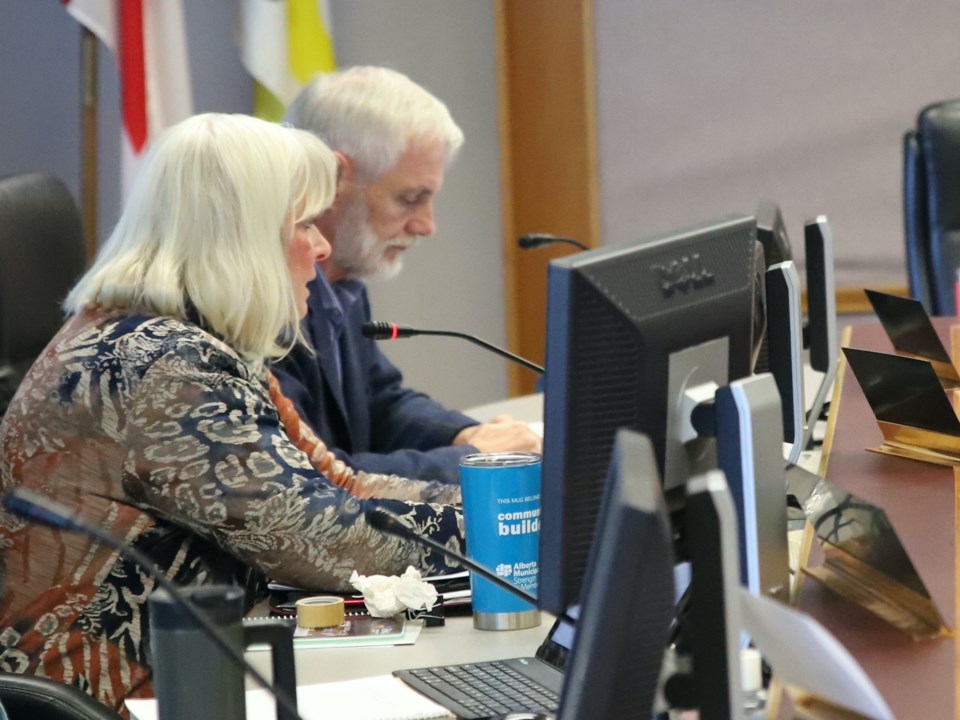OLDS — Residents won’t receive a rebate for last month’s boil water advisory – at least, not yet.
During its Nov. 27 meeting, town council voted to simply receive a report outlining a possible rebate for information.
Had that proposal been approved, the average residential property owner would receive a rebate of about $4.03. The average non-residential customer would receive a rebate of about $21.76.
The boil water advisory occurred for three days, starting on Oct. 29. It was lifted Nov. 1.
The problem was traced to a power failure at the Anthony Henday water treatment plant near Innisfail, which provides Olds with its water and is operated by the the Mountain View Regional Water Services Commission (MVRWSC).
Chief administrative officer Brent Williams said that event caused sludge and sediment to shoot through a water line into Olds, thus creating turbidity (cloudiness) in the water.
That in turn spurred the boil water advisory.
In council’s Nov. 27 agenda package, administrative staff proposed a 13 per cent rebate on water consumption for November.
The rebate would cover 10,000 cubic metres of water consumption at a total cost of $31,000.
That cost was broken down into the rebates to residential and non-residential consumers noted above.
“If council chooses to proceed, this rebate serves as a proactive response to the inconveniences faced during the advisory period. It is uncertain whether we would be able to recover this amount,” a staff request for decision said.
The report also said as of late November, the boil water advisory event had cost the town about $80,000. If the rebate is approved, that figure would swell to $111,000.
Coun. Dan Daley asked if the water commission had indicated any plans to rebate the town for expenses incurred as a result of the boil water advisory.
“No, not yet,” Williams said. “The town met with the commission last week and we’re still trying to work out the how and what of that event. So as of right now, no, there’s no clear direction on that yet.”
Hearing that, Coun. Heather Ryan said the town should hold off on issuing a rebate of its own until it hears from the commission.
Coun. James Cummings questioned the whole idea of rebates in this situation, noting the commission is a taxpayer-funded entity, as is the town, so a rebate given by the commission to the town or from the town to residents would just see taxpayer dollars going in a circle.
“It’s just coming from one pocket and going into another pocket,” Cummings said. “There’s no advantage to the user because that $31,000 comes from the revenue we draw from them in the first place.”
He also said providing a rebate would set a bad precedent, because systems such as the water distribution system do break down every once in a while.
Ryan agreed with those thoughts.
Coun. Wanda Blatz said the boil water advisory did create some hardship, as some residents bought bottled water to get through the event and as a result that water became scarce.
She also said it’s her understanding that the town is charged by the commission for water that was flushed from fire hydrants during the event.
In a later email to the Albertan, Williams said that water is still paid for by the town. But instead of using revenue from utility bills it comes from the town's general revenue, because it is unmetered.
Blatz agreed with an emerging sentiment around the council table to accept administration’s report as information, pending more information on the matter from the commission.
Mayor Judy Dahl echoed that thought as well and questioned whether every resident was affected by the advisory.
“Coun. Cummings is correct. We only have one taxpayer and a variety obviously user fee payers. So this is more, I think, of a philosophical position, if I had to use a multi-syllable word,” Williams said.
“If council believes that the situation warrants a rebate, albeit, the best we can come up with is a four-day average, of only $4 on average per household, even that amount may be too little to really justify making any definite decision on it.
“But if you believe that it’s just an inevitable (consequence) of running a 40-year-old water system, that at some point, things like this happen, then obviously, turn it down.”



